Recycling technology – Coca-Cola 25-05-2023 - Arhive
Recycling technology – Coca-Cola LFP battery – EV-cars Ford
Crude Oil Prices Trend

Crude Oil Prices Trend by Polyestertime
-TotalEnergies and Changsu Industrial to advance BOPLA industry in China
The new BOPLA products are hoped to help China reach its national Made in China 2025 sustainability targets
French company TotalEnergies Corbion has signed a strategic cooperation agreement with biaxial-oriented polyamide film (BOPLA) manufacturer and supplier Xiamen Changsu Industrial. Recycling technology – Coca-Cola LFP battery – EV-cars Ford
The agreement will see both companies working together for advancing the adoption of biobased BOPLAs.
The companies will focus on product development, market promotion, as well as on the research and development of new BOPLA technologies and applications.
TotalEnergies Corbion CEO Thomas Philipon said: “With increasing needs for sustainable solutions globally, the partnership of Changsu and TotalEnergies Corbion is paving the way for the introduction of more PLA-based innovation to the world.
“It’s a win-win-win for people, industry, and the environment.”
The agreement will further allow Changsu Industrial and TotalEnergies Corbion to introduce sustainable solutions to the Chinese market.
One such sustainable alternative is the BOPLA adhesive tapes which can be developed using Changsu’s BiONLY product. Recycling technology – Coca-Cola LFP battery – EV-cars Ford
This adhesive material can replace traditional fossil-based material used by the national postal service in China.
The country has already announced new regulations to promote the use of biodegradable materials in its postal service by 2025 with some of its cities working to achieve this by the end of this year.
Once developed, alternatives like BOPLA-based adhesive tapes are also expected to be widely adopted by other Chinese industries in the future, beyond postal services, the companies added. Recycling technology – Coca-Cola LFP battery – EV-cars Ford
Changsu Industrial vice-president Mou Qingying said: “The bioplastic industry in China has seen tremendous growth with new technological breakthroughs in biobased materials after the country issued its manufacturing sector development plan known as Made in China 2025.
“These innovations will contribute to the worldwide green transformation and help China reach its goal of being carbon-neutral by 2060.”
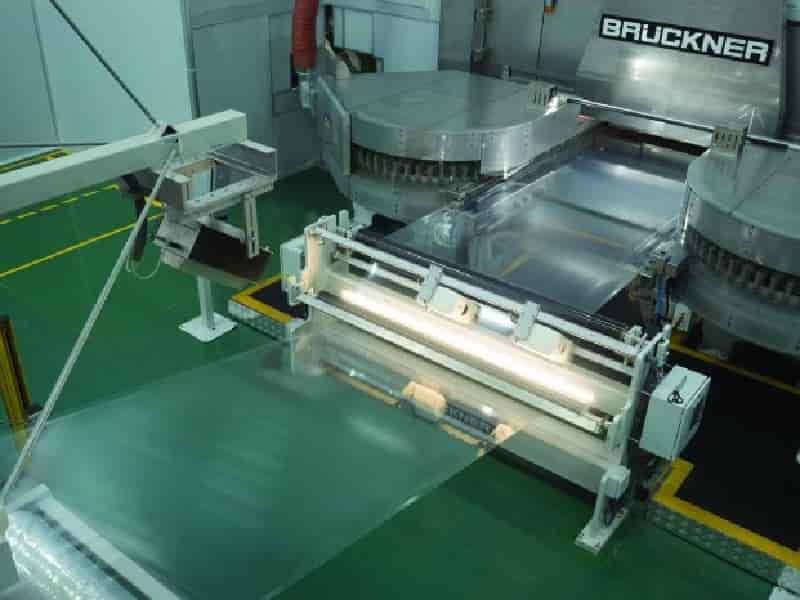
-Solvay, a leading producer of specialty materials, has recently unveiled an innovative development in the form of KetaSpire KT-857, a cutting-edge polyetheretherketone (PEEK) extrusion compound
This new compound has been specifically designed to revolutionize the insulation of copper magnet wire in electric motors. The driving force behind the creation of this custom-engineered insulation material stems from the automotive industry’s shift towards higher density batteries and electric powertrains operating at 800V or higher. These advancements are aimed at addressing the common concern of range anxiety among consumers. Recycling technology – Coca-Cola LFP battery – EV-cars Ford
To accommodate the requirements of higher voltage e-motors, thicker magnet insulation, reaching up to 180 microns, is often necessary. Brian Baleno, Head of Marketing, Automotive, at Solvay Materials, explains, “Unlike the traditional method of applying insulation with a single PEEK extrusion layer, the polyimide process involves multiple application passes, which can potentially introduce defects that are magnified with each added layer. Conversely, one of the primary challenges associated with standard PEEK extrusion is achieving adequate adhesion between the insulation and the copper magnet wire. Our KetaSpire PEEK KT-857 technology effectively eliminates both of these constraints.”
Beyond the pursuit of enhanced adhesion through a faster and more cost-efficient monolayer process, Solvay’s novel magnet wire PEEK insulation material also strives to deliver significant sustainability benefits. The extrusion of a single insulation layer requires less energy, and Solvay claims that, unlike the enamel process, it does not involve the use of any volatile organic compounds. Additionally, KetaSpire KT-857 PEEK ensures a more uniform insulation layer, further enhancing its performance and reliability.
KetaSpire KT-857 complements Solvay’s extensive portfolio of dedicated e-motor solutions. This portfolio includes Ajedium PEEK film and Xydar LCP for slot liners, Amodel PPA and Ryton PPS resins for high-voltage connectors, connection rings, and busbars, as well as Xencor long fibre thermoplastics for slot wedges.
Together, these comprehensive solutions cater to the diverse needs of the evolving electric vehicle industry, positioning Solvay as a leader in providing innovative materials for this growing market segment. Recycling technology – Coca-Cola LFP battery – EV-cars Ford
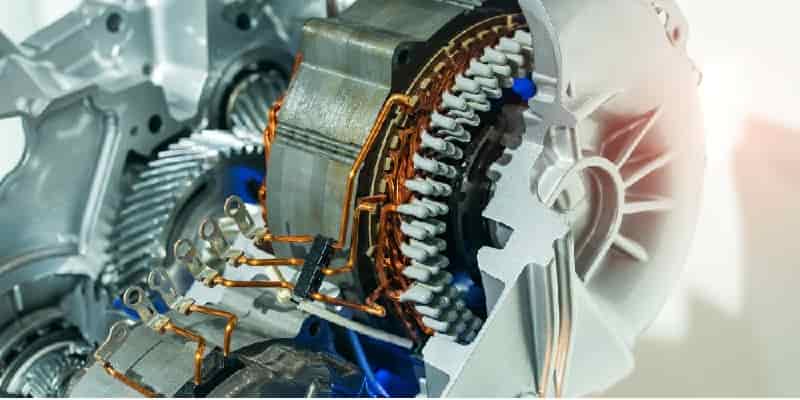
-CCEP Ventures, the investment arm of Coca-Cola Europacific Partners (CCEP), has exciting news to share as it announces its second investment in the recycling start-up CuRe Technology, based in Emmen, Netherlands
As the world’s largest independent Coca-Cola bottler, CCEP is committed to eliminating the use of virgin oil-based plastic in its bottles, and it is actively exploring various avenues to achieve this ambitious goal. One technology that has shown great promise is CuRe Technology’s innovative approach. LFP battery – EV-cars Ford
In 2020, CCEP made its initial investment in CuRe Technology, recognizing the potential of their proprietary ‘polyester rejuvenation’ technology. This investment aimed to accelerate the development of CuRe Technology’s groundbreaking solution by providing support for their research and development roadmap, as well as their pilot plant. Now, CCEP Ventures is doubling down on its commitment by making a further investment.
CuRe Technology was born out of the collaboration between a consortium of recycling innovators and experts, led by the Morssinkhof Group and the Cumapol/DuFor Group. Strategic partners in this venture include Niaga and NHL Stenden University of Applied Science. Recycling technology – Coca-Cola
Through their collective expertise, CuRe Technology has developed a partial depolymerization process that focuses on shortening the polymer chains just enough to remove impurities. This approach appears to be less energy-intensive compared to full depolymerization.
Remarkably, CuRe Technology’s recycling process produces high-quality recycled PET (rPET) with a carbon footprint approximately 65% lower than that of virgin PET, as determined by CuRe’s comprehensive life cycle assessment.
Initially, CuRe Technologies applied this innovative technology to transform opaque and traditionally challenging-to-recycle food-grade PET into high-quality rPET suitable for food and beverage packaging applications. The process takes place in a continuous manner on a single site, streamlining operations and maximizing efficiency.
With CCEP’s latest investment, CuRe Technology will be able to transition from the pilot plant phase to full commercial readiness. The plans include the establishment of a new plant, scheduled to commence production in 2025. This significant milestone will enable CuRe Technology to scale up its operations and meet the growing demand for sustainable packaging solutions. Recycling technology – Coca-Cola
Additionally, CCEP will gain access to CuRe Technology’s rPET, ensuring a reliable supply for its bottles across Europe. This strategic partnership will empower CCEP to fulfill its commitment of achieving 100% rPET usage in PET bottles, furthering its sustainability goals and contributing to the circular economy. LFP battery – EV-cars Ford
By investing in CuRe Technology and supporting its innovative recycling process, CCEP Ventures reaffirms its dedication to driving positive change within the beverage industry. Together, they are forging a path toward a more sustainable future, where plastic waste is minimized, and valuable resources are preserved through advanced recycling technologies.

Credit : CuRe Technologies
-Expanding upon the topic of giving new life to hard-to-recycle plastics, our company is at the forefront of innovation with our revolutionary MoReTec molecular recycling technology
Plastic packaging plays a crucial role in our daily lives, providing essential preservation and safety measures for a wide range of products. From snacks and bakery items requiring specialized barriers to maintain freshness, to packaging for frozen microwaveable vegetables that must withstand extreme temperatures, and even plastic bottles containing household cleaning products that need to prevent leaks and ensure child safety – the design and functionality of these plastics present unique challenges for recycling.
Traditional recycling methods, such as mechanical recycling, have their limitations when it comes to complex plastics. LFP battery – EV-cars Ford
Mechanical recycling involves shredding, cleaning, melting, and pelletizing the waste without significantly altering the chemical structure.
While the resulting plastic resins find applications in various industrial and consumer products, they are often unsuitable for critical uses like food packaging and medical supplies. Recycling technology – Coca-Cola
Enter molecular recycling, an advanced technique that employs a process called pyrolysis to break down plastic waste into its individual component molecules. Unlike mechanical recycling, which merely cuts plastics into smaller pieces, molecular recycling transforms them into valuable feedstock for manufacturing. This method produces new plastic resins that can be utilized across all applications, including food packaging and medical supplies. Furthermore, molecular recycling holds the potential to reduce the industry’s reliance on fossil fuels by repurposing a larger quantity of plastics into new materials.
At our company, we are developing an innovative molecular recycling technology called MoReTec. This proprietary technology utilizes a catalyst within the pyrolysis process to enhance the breakdown of plastic waste. Our team is confident that MoReTec possesses significant potential due to its lower energy consumption and highly efficient chemical conversion process, enabling us to scale up operations for commercial use. Our collaboration with Germany’s renowned Karlsruhe Institute of Technology (KIT) has already demonstrated the efficacy of the MoReTec technology at the laboratory scale, reinforcing our confidence in its capabilities. Recycling technology – Coca-Cola
In 2019, we embarked on an extensive screening process to identify potential catalyst systems and conducted tests on various plastic waste streams. Building upon our findings, we took a significant step forward in July 2020 when we commissioned a small-scale pilot plant at our facility in Ferrara, Italy. LFP battery – EV-cars Ford
The purpose of this pilot plant is to develop and optimize the process conditions required to make MoReTec technology scalable for a semi-industrial proof-of-concept plant by 2021.
Through our relentless pursuit of innovation and sustainable solutions, we aim to revolutionize the recycling landscape by breathing new life into hard-to-recycle plastics. The MoReTec molecular recycling technology holds the promise of transforming plastic waste into valuable resources, paving the way for a more circular and environmentally conscious future.
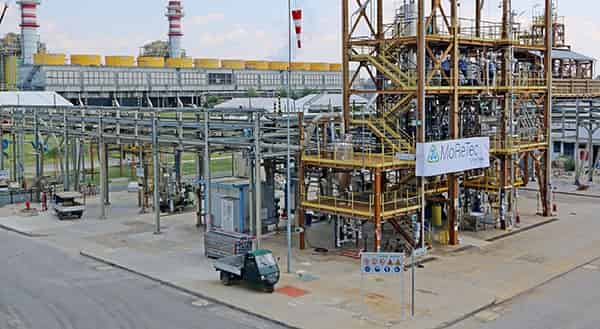
-Ford Motor Co CEO Jim Farley presented an ambitious roadmap for the future of the company during Monday’s investor day
The strategy focuses on cost reduction, improved product quality, and a shift towards software, services, and innovative vehicle offerings.
One key aspect of Ford’s plan is to reduce its emphasis on highly competitive market segments, such as small SUVs, and instead prioritize software, services, and vehicles that have shown strong demand. LFP battery – EV-cars Ford
This includes a renewed focus on pickup trucks, large SUVs, commercial vehicles, and high-end electric vehicles, particularly the second generation of electric models.
The Washington Post reported on Ford’s intention to capitalize on these areas.
In addition, Ford aims to streamline its vehicle manufacturing processes by reducing the number of parts used. Recycling technology – Coca-Cola
This strategic move will not only lead to cost savings but also help decrease warranty and recall expenses, boosting overall profitability.
Ford has set an ambitious target of achieving a 10% pre-tax profit margin by 2026. The company also reaffirmed its earlier guidance of $9-11 billion in pre-tax profit for 2023. Farley emphasized a shift in focus from competing for small market shares to providing personalized ownership experiences.
He even suggested the possibility of non-negotiable pricing for Ford vehicles, highlighting the company’s commitment to offering unique and tailored customer experiences.
To support its electric vehicle division, Ford announced a series of partnerships to secure a steady supply of lithium products. LFP battery – EV-cars Ford
Reuters reported that these deals involve Albemarle Corporation , Nemaska Lithium, Compass Minerals International, Inc , and EnergySource Minerals. Through these partnerships, Ford aims to make its electric vehicles more competitive and ensure eligibility for new federal tax credits. Recycling technology – Coca-Cola
Ford has set an ambitious target of producing two million electric vehicles by 2026, a significant increase from the expected 600,000 units by 2023.
Furthermore, Ford confirmed its plans to split into three distinct units: Ford Blue, Ford Model E (focusing on electric vehicles and digital products), and Ford Pro (dedicated to the commercial vehicle business).
Each unit is expected to contribute to the company’s overall profitability. Although the Model E unit may report a loss this year, it is anticipated to be offset by profits from the traditional Blue and Pro fleet businesses. LFP battery – EV-cars Ford
This strategic division will allow Ford to effectively address the evolving needs of different market segments while driving innovation and profitability. Recycling technology – Coca-Cola
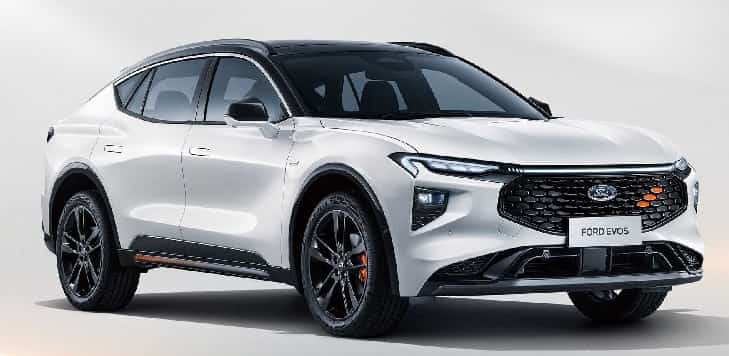
Credit : Ford
-Indian Oil Corp., the leading refiner in India, has announced its plans to embrace sustainable practices in its petrochemical operations
In an effort to decarbonize its petrochemical feedstocks, the company aims to introduce bio-naphtha into its cracking process. Chairman Shrikant Madhav Vaidya emphasized the importance of transitioning to bio-based feedstocks like bio-naphtha and bio-ethanol to achieve long-term sustainability in the petrochemical industry. Although no specific timeline was provided, Indian Oil Corp. is actively exploring the utilization of bio-naphtha and bio-ethanol as alternatives. LFP battery – EV-cars Ford
Bio-naphtha, a renewable fuel, is typically derived from the hydro-treatment of used vegetable and cooking oils. Indian Oil Corp. is currently conducting research and development on bio-naphtha at its facility in Faridabad, located in northern India. A. S. Sahney, the executive director of petrochemicals, mentioned that while the company is considering the pathway of using used cooking oil, their primary focus is to obtain bio-naphtha through the conversion of bio-ethanol.
This approach highlights their commitment to developing innovative and sustainable solutions for the petrochemical industry. Recycling technology – Coca-Cola
The move towards bio-naphtha aligns with Indian Oil Corp.’s broader objective of reducing carbon emissions and promoting a greener future. By adopting bio-based feedstocks, the company aims to minimize its reliance on traditional fossil fuels and contribute to a more environmentally friendly petrochemical sector. With ongoing research and development efforts, Indian Oil Corp. is actively working towards integrating bio-naphtha into its operations, thus furthering its commitment to sustainable practices.
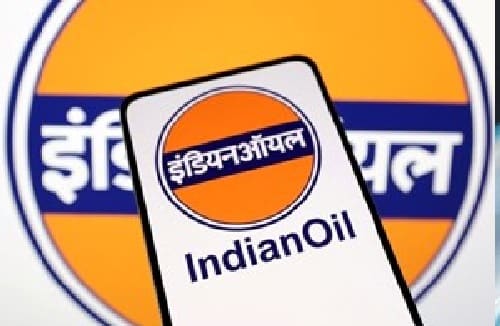
Credit : Indian Oil
-Here is the new Tesla Model Y, equipped with the powerful Blade battery supplied by BYD
This exceptional vehicle was manufactured in Berlin’s renowned Gigafactory and uses LFP (lithium iron phosphate) chemistry for its battery. With a capacity of 55 kWh, Model Y promises an impressive range of 440 km, offering an ideal solution for electric car enthusiasts. LFP battery – EV-cars Ford
This long-awaited collaboration between Tesla and BYD has finally taken shape, although both companies have kept their official deal a secret. This is understandable, considering they are two of the main competitors in the electric car market, with a significant presence and constant competition for the top spot in global sales.
However, there is now no doubt that this Model Y has been equipped with BYD’s renowned Blade battery. Recycling technology – Coca-Cola
The Blade battery, supplied by FinDreams, a subsidiary of BYD specializing in the production of batteries, has a unique feature: the cell-to-pack architecture. This means that there are no intermediate modules inside the battery, which leads to an increase in its energy density. The Blade battery has undergone rigorous evaluation tests and demonstrated excellent performance. In the Tesla Model Y, with a capacity of 55 kWh, it is able to recharge from 11% to 71% in just 15 minutes, thanks to a maximum charging power of 170 kW. LFP battery – EV-cars Ford
Interestingly, the Chinese-sourced Blade battery was introduced at Gigafactory Berlin about a month ago. According to German media, it entered production lines on May 4, and about 15 days later, on May 20, the first Model Y with this new battery was completed. At the moment, the vehicle is still in the prototype stage and not yet officially in production. However, in the future it could be available on the market as an entry-level model, offering a range of 440 km. That’s a noteworthy figure, especially when compared to the entry-level Chinese-made Model Y, which features a CATL battery with a capacity of 60 kWh and a range of 455 km. Recycling technology – Coca-Cola
In conclusion, the Tesla Model Y equipped with BYD’s Blade battery represents a significant step forward in the electric car sector. The combination of Tesla’s outstanding performance with BYD’s renowned battery technology promises an exceptional driving experience and adequate range to meet the needs of modern drivers.
With further developments and eventual market introduction, this new collaboration could pave the way for further innovations and advancements in the electrification of transportation. LFP battery – EV-cars Ford
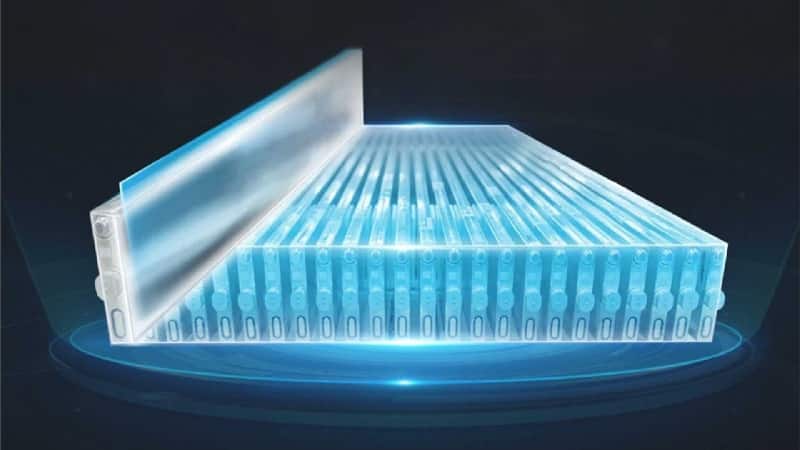
Credit : BYD
